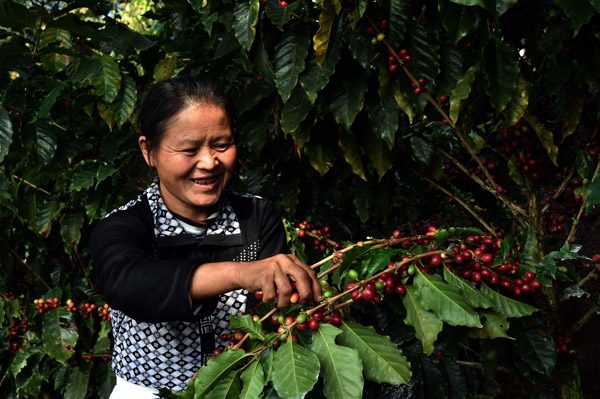
A strategy to vitalize China’s countryside, put forward by the top leadership in October, is expected to get a substantial boost at an approaching key meeting on rural development, experts said.
The strategy will be high on the agenda of the Central Rural Work Conference, and experts have highlighted the importance of using environmentally friendly methods.
The annual gathering, which sets the tone for the next year’s agricultural and rural development, usually is held before year’s end.
“Promoting green agricultural production is a major aspect of the rural vitalization strategy, which can help solve problems caused by traditional production modes, such as environmental pollution in rural areas,” said Wen Tiejun, an economist and professor of agricultural development at Renmin University of China in Beijing.
Li Guoxiang, a researcher at the Chinese Academy of Social Sciences’ Rural Development Institute, said agricultural supply-side reform, including transforming development to stress quality and environmental protection, is also likely to be a focus.
The rural strategy, put forward during the 19th National Congress of the Communist Party of China in October, urged development of agriculture and a pleasant living environment in rural areas as priorities.
“In the past, we … did not invest enough in pollution prevention and control in rural areas. But the situation has improved in the past five years,” Yang Weimin, deputy head of the Office of the Central Leading Group on Financial and Economic Affairs, said during the congress.
“I believe that in the future, equal importance will be given to environmental improvement in urban and rural areas,” he said.
China will give priority to ecological and environmental protection while developing agricultural projects, so the environment in rural areas will keep improving and the supply of green and safe products will see a big improvement by 2030, according to a guideline released by the State Council in September.
The Ministry of Agriculture will make more efforts to promote organic fertilizers to replace synthetic fertilizers in the production of fruits, vegetables and tea over the next few years, according to a ministry circular released in April. It is expected that use of synthetic fertilizers will be decreased by 20 percent or more by 2020 in areas where fruits, vegetables and tea are the primary agricultural products, the circular said.
Liu Xu, vice-president of the Chinese Academy of Engineering, said agricultural development faces pressing challenges caused by a worsening ecology, such as erosion of fertile soil in northeastern regions, water scarcity in North China and heavy metal pollution in some southern parts of China.
“Green production is necessary for a sustainable development of agriculture, to ensure China’s food security and to modernizing China’s agriculture,” he said.
A major task to promote green agricultural production for the rural revitalization strategy is to cultivate talent, Wen said. “Fundamental changes are needed in agricultural education … to really promote green and sustainable agriculture.”


